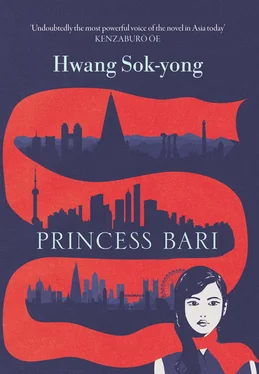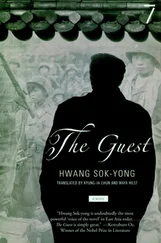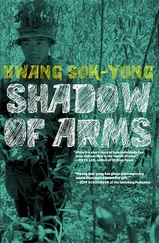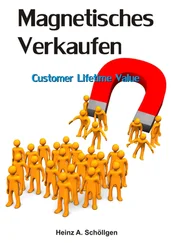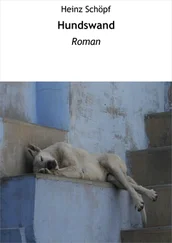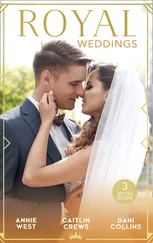Luna and I went to a Muslim butcher shop in the marketplace. The meat was halal , which meant that the lamb and chicken had been drained of their blood and blessed. We also bought fish. Ali went to a Pakistani restaurant and ordered all kinds of foods: chapattis, chaanp, haleem , fried dumplings, barfi and so on. But I wanted to make a few dishes myself to serve to our wedding guests. Luna and I made lamb and vegetable tikka kebabs and a spicy chicken curry with lots of green chillies.
Ali invited his co-workers from the minicab company. Nearly half were Pakistani, while the rest were young Muslims from around Shepherd’s Bush. Grandfather Abdul invited a few of his friends from the neighbouring mosque. Ali’s two younger sisters skipped school and came down to London to help me. We placed two tables in the courtyard and set them with food and drink and stacks of plates and cups so that the guests could help themselves to as much as they wanted. No one showed up until it started to grow dark. We played a tape of Pakistani music, which had a fast rhythm and a singer with a warbling voice.
Luna told me it wasn’t time yet, so we went into her flat and waited. I put on the yellow dress that Grandfather Abdul had bought for me, and wrapped the yellow veil around my head. Luna explained that I had to keep my face covered when I was out there in front of everyone. Then Luna applied a mehndi design to my fingers and the backs of my hands using henna paste. She was supposed to draw it on my legs as well, but I told her not to. Vines, leaves and flowers wound along my skin. Luna was used to giving henna tattoos at the salon; it took her no time at all to recreate the designs. Ali’s little sisters opened the door and gestured to us.
“It’s time!”
“Hold on!” Luna yelled, a tube of mascara in her hand. “I need to do her eye makeup.”
She applied black eyeliner and mascara to my eyes. When I glanced in the mirror, the deep-set eyes of a Pakistani woman looked back at me from beneath the yellow veil. Ali’s sisters exclaimed at how pretty I was. I went out to the courtyard and sat in a chair. I had my face covered with the veil, but the light was so bright that I could see everything clearly. The sisters searched for a song, then turned up the volume and sang along. Ali appeared, wearing a white tunic. Luna and his sisters ran to him and sprinkled red rose petals at his feet. When he entered the courtyard, they held a shawl above his head to symbolically shield him from the sky. Ali walked up to a stool set in the middle of the courtyard, and seated himself on it. The guests each came up to him, took out some cash, circled it over his head and gave it to him. His sisters, who were standing next to him, collected the money. Grandfather Abdul and his friends from the mosque danced to the music with their arms raised, while the younger Pakistanis, including Ali’s sisters (as well as Luna), danced around in circles.
“The groom is as handsome as a peacock, and the bride is prettier than a flower. God, receive and bless these two.”
Everyone sang, danced and placed sweets in my mouth. When I turned my head to try to refuse more, they stuffed them in anyway. As it was an informal ceremony, there was only one round of singing and dancing, and then everyone gathered around the tables to eat. Everyone kept calling for me to join them, so Ali lifted my veil and I rewrapped it around my hair as a hijab .
As the non-Muslim guests would have been disappointed if there was no alcohol, beer had been provided as well. Uncle Tan gave a short speech, and then Uncle Lou stood up and started to give a toast — but he suddenly choked up and had to turn around to wipe his tears. I knew without his having to say anything that he was thinking of the daughter he’d left behind.
The actual wedding ceremony was being held the very next day in Leeds, so we left early the next morning in a van borrowed from Ali’s workplace, accompanied by Uncle Tan, Luna, Ali’s sisters and Grandfather Abdul.
When we arrived, the front yard was already crowded with people. Ali’s siblings were there along with his parents, relatives, friends, neighbours and people from the mosque. There were close to a hundred guests altogether. Ali’s parents had obtained permission from their neighbours to put up an awning in their yard in order to accommodate the overflow of guests, and seats were prepared for friends and relatives up on the roof.
I went up first and sat down to wait for my groom. Ali was downstairs in the yard, greeting all the guests. His sisters and friends placed flower garlands around the necks of Ali’s parents and Grandfather Abdul. They placed another one around Ali’s neck as he was coming up the stairs. When he was finally next to me, we greeted the guests, who gave me gifts of money. We signed the marriage contract, which was officiated by an imam . Luna and a friend of Ali’s sister who lived in Bradford served as my witnesses. Two of Ali’s friends who’d gone to school with him in Leeds were his witnesses. Then we took dozens of photos, went downstairs to greet the guests from the neighbourhood as bride and groom and were given more wedding gifts of cash. We spent the next day resting in the comfort of close family. Then Grandfather Abdul, Luna, Ali and I returned to London. I was in a daze for the next few days from all that sensory overload.
Ali used the money that his father and grandfather had given him to purchase a used Volkswagen estate car that wasn’t too old. He signed a contract with the minicab company as an official driver and car owner. Now he only had to pay call fees to the company, but was his own boss otherwise.
Uncle Lou and Uncle Tan had spent a lot of money on our wedding. Uncle Tan not only gave us three hundred pounds as a wedding gift, he’d also given me a thousand-pound advance on my wages. Uncle Lou had gifted us two hundred pounds.
But he gave me an even bigger gift besides that.
A few days after the wedding, he came to the store and told me that my smuggling debt was nearly paid in full, and as I was now married to a British citizen, wouldn’t I like to apply for a real passport and obtain a residence visa? The passport I’d been given when I was smuggled into the country had been bought by the snakeheads from a forger, and would be detected immediately by immigration officials. Uncle Lou said he could get me the passport of a recently deceased Chinese woman who’d had a legal residency visa. He’d joked with me once that no matter how many people in Europe’s Chinatowns get sick and die or pass away of old age, the populations never get any smaller. When I thought about being able to register my marriage officially and receive a work permit, I decided it didn’t matter how much it would take to purchase the dead woman’s passport. It would probably cost me at least five thousand pounds, but Ali and I could find a way to earn money and pay down the debt.
I thought about the deal Princess Bari made with the totem pole in my grandmother’s stories: three by three is nine — nine years spent giving him a son and caring for his home in exchange for passage, firewood and water.
I realized that life means waiting, enduring the passage of time. Nothing ever quite meets our expectations, yet as long as we are alive, time flows on, and everything eventually comes to pass.
Ali and I moved into the flat the Nigerian couple had lived in, but we decided to use his grandfather’s kitchen upstairs to cook. That way, the three of us could eat together as a family. As soon as I got home from work in the evenings, I cooked dinner using whatever Grandfather Abdul had picked up at the market that afternoon based on the note that we’d left for him, but it was often just Grandfather Abdul and me. As the weekends kept Ali busy, he usually took a couple of days in the middle of the week to rest during the day and work the late shift after dinner.
Читать дальше
